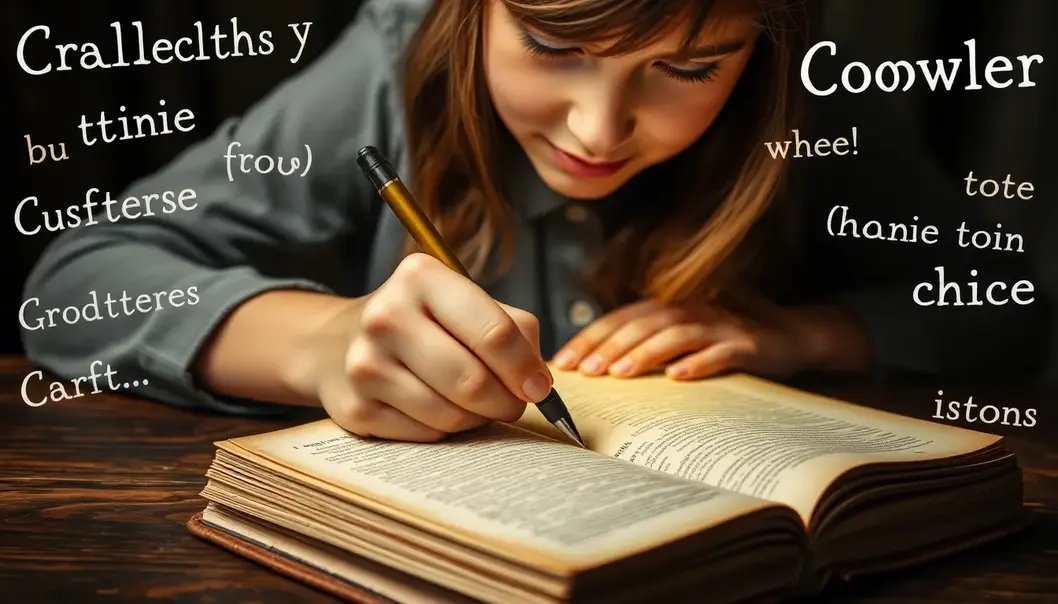Have you ever daydreamed about characters and worlds of your own making? Ready to turn those epic imaginations into written masterpieces? Writing a novel as a teenager can seem like a thrilling yet daunting task, especially with a head full of vibrant ideas. But fear not! With a dash of creativity and a sprinkle of determination, you’re well on your way to author success. Whether you’re inspired by magic, mystery, or an epic romance, your story is unique, and the world deserves to read it. Grab your pen (or keyboard), unleash your imagination, and let’s spark a novel-writing adventure like no other!
Start with Explosive Ideas

An incredible story begins with an explosive idea, one that captures your imagination and refuses to let go. Those vibrant sparks that light up your mind when you’re daydreaming or caught in a compelling moment? Those are the seeds of your narrative adventure. But how do you harness those fleeting inspirations into tangible story ideas?
The first step is embracing the practice of brainstorming. Grab a notebook or open a new document, and allow yourself the freedom to jot down every idea, no matter how outlandish it might seem. Remember, creativity thrives on contradiction and absurdity. Letting your mind wander to generate and welcome the unexpected is key. You’re not just thinking outside the box; you’re exploring an entirely new dimension.
To ignite your imagination further, consider engaging in creative exercises that challenge your perception of characters, settings, and plotlines. Begin with character creation. Imagine a person living in a world entirely different from your own. What are their greatest fears, and what drives them each day? Develop a dossier that profiles their personality traits, history, and dreams. The more vivid their backstory, the more real they become, ensuring that readers can relate to or be fascinated by them.
Next, transport yourself into the heart of captivating settings. Picture yourself in a bustling marketplace in a futuristic city or a quiet, enchanted forest at the edge of reality. Describe the sensory experiences in detail—the scents, the sounds, the textures beneath your feet. These rich descriptions provide a tangible world your characters—and readers—can immerse themselves in. Dynamic settings can become characters in their own right, influencing the narrative and the characters’ journeys.
Once you have a sense of the people and places, weave them into thrilling plotlines. What if the character’s greatest dream takes them into the heart of danger, forcing unlikely alliances and breathtaking escapes? What twists can keep readers on the edge of their seats, eager for what happens next? Consider using storyboarding or mind-mapping tools to visually layout the sequence of events, highlighting key turning points and moments of tension.
Sometimes, the best plot ideas come not just from your own head, but from the world around you. Keep an eye on current events and personal experiences; these can be rich sources of inspiration, filled with unique viewpoints and layered narratives waiting to be explored in fiction.
Remember, no idea is too big or too small to be the cornerstone of your story. The goal is to keep experimenting and exploring until you find that explosive idea that will carry your novel from concept to creation. Embrace the challenge, and never hesitate to dive deep into the wells of your creativity. This journey is as much about discovering yourself as it is about telling a story that only you can tell.
Crafting Your Unique Voice

Every great novelist has something ineffable—a piece of themselves—that shines through their work. This is what we refer to as your unique voice. It’s the distinct fingerprint of your style that captivates readers and brings your characters, settings, and plots to life. But how do you find this voice, especially when you’re just starting your writing journey?
First, remember that your voice is already within you. It’s shaped by your experiences, perceptions, and the myriad influences of your life. However, developing a unique narrative voice requires practice and awareness. Start by mimicking the voices that inspire you. It’s a natural phase in finding your style. Analyze why you resonate with certain authors. Is it their descriptive prowess or perhaps their humor? Dissect their techniques and try incorporating them into your writing.
Next, engage in regular free writing, a technique that encourages you to pen down your thoughts without the pressure of grammar or structure. Free writing unlocks subconscious elements of your style. You’ll notice recurring elements, whether it’s a specific tone or a preference for certain types of metaphors. These are clues to what your unique voice may sound like.
Listening to yourself is crucial too. Read your work aloud—this practice not only refines your voice but also enhances your narrative’s rhythm and pacing. As you do so, ask yourself: does it sound like something you would say? If not, adjust it until it feels natural. Remember, authenticity is key.
Equally important is feedback. Share your writing with peers or mentors who can provide insights into your writing voice. They will often pick up on elements you might overlook. Be open to their suggestions, but remember: the ultimate goal is to be true to your vision and style.
Experimentation is also vital. Dive into different genres and styles, push your creative boundaries, and don’t shy away from adopting unconventional approaches. Over time, the elements that resonate will coalesce into a vibrant narrative voice.
In finding your unique voice, be patient. This journey is as lengthy and nuanced as the stories you’re eager to tell. Your voice will mature over time, shaped by both your evolving worldview and writing experiences. So embrace the process, find joy in the experimentation, and, most importantly, remain true to yourself. This journey isn’t just about creating stories—it’s about discovering who you are as a storyteller.
As you continue to develop your narratives, consider exploring resources such as available articles, which can offer further guidance on your path to becoming a novelist.
Final words
You’ve got the power to craft a story that’s entirely yours, filled with your imagination and heart. Embrace each word you write, and let your creativity take flight. The journey to becoming a novelist is full of exciting twists and turns. So keep dreaming, keep writing, and let your story unfold. Who knows? Your novel might just be the next big thing!
Ready to start your novel-writing adventure? Join our writing community and hone your skills!
Learn more: https://www.teenwritershub.com/join
About us
Teen Writers Hub is a vibrant online community dedicated to young authors. We offer resources, writing challenges, and mentorship to support you on your creative journey.

